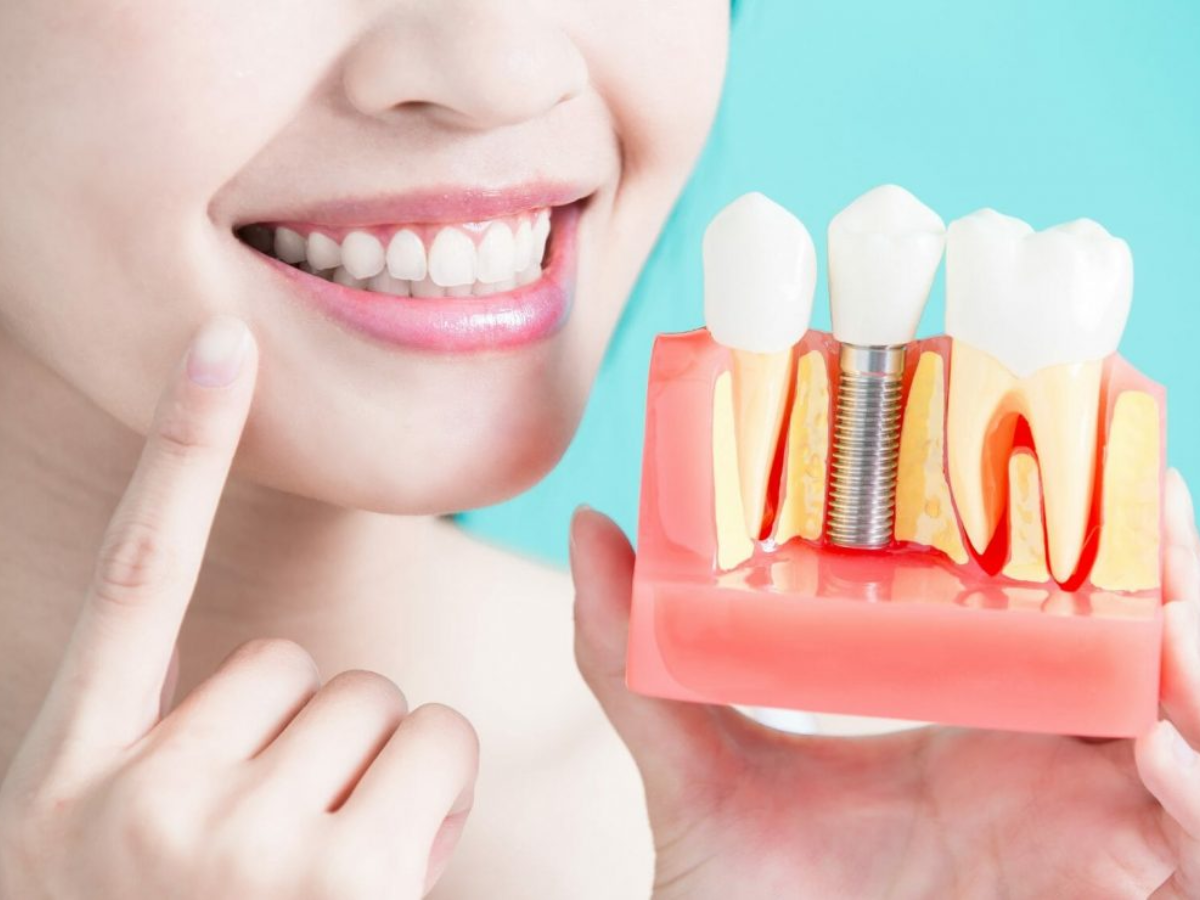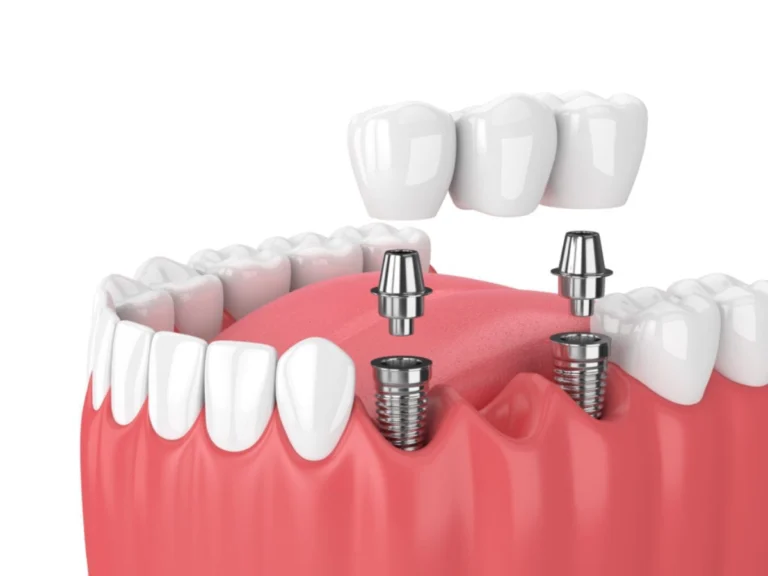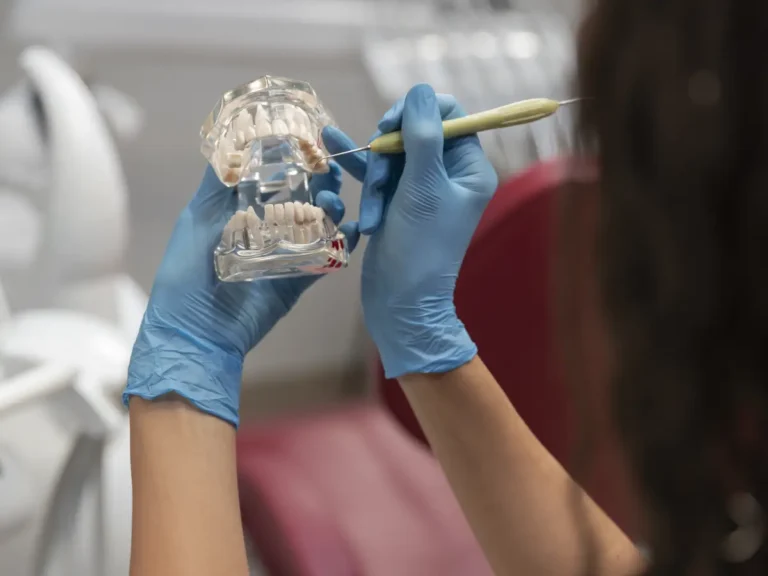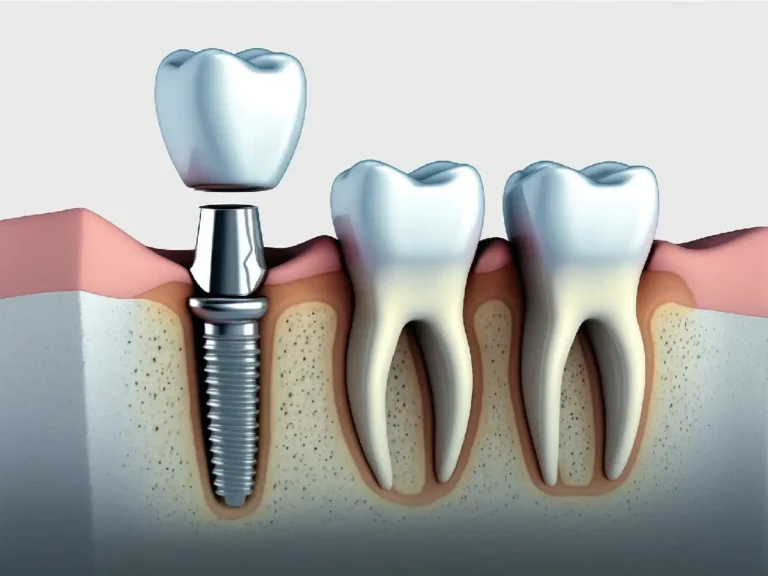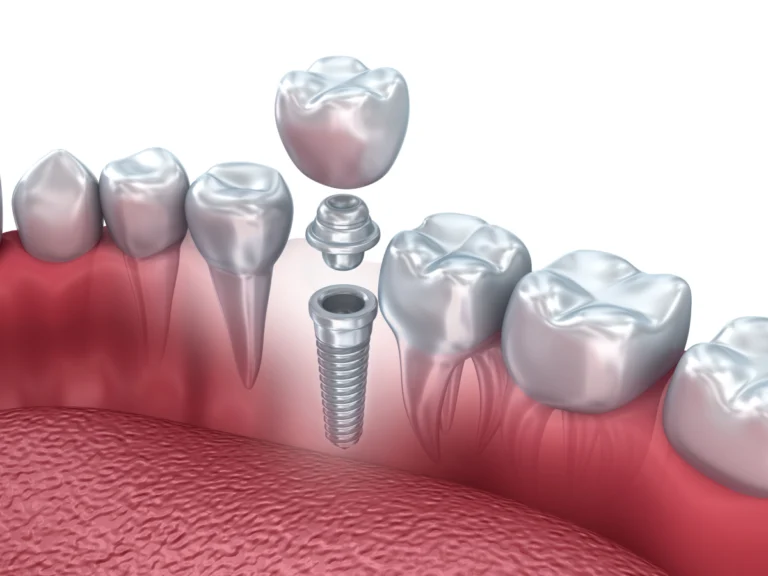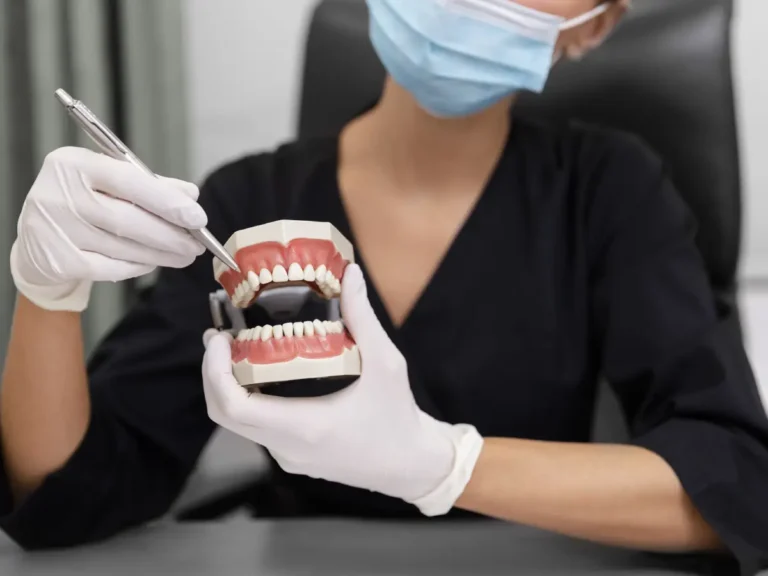Dental implant surgery is a procedure in which damaged or missing teeth are replaced with artificial teeth that look and function just like real teeth. They can provide a welcome alternative to dentures or bridges that don’t fit well.
The method of performing dental implant surgery depends on the type of implant and the condition of your jawbone. The main benefit of implants is that they provide strong support for your new teeth.
So, discover 6 benefits of dental implants, from improving appearance to preserving your jawbone. Then compare implants and bridges with medconsulto.
Why Dental Implants Are Important?
Considering teeth replacement options, dental implants stand out as a permanent solution.
There are several types of dental implants available, and the Dental Implant Procedure typically involves placing artificial tooth roots into the jawbone.
While the benefits of dental implants include natural appearance and improved oral function, patients should be aware of potential Side Effects of Dental Implants, such as temporary discomfort.
Dental implant recovery usually takes a few months for complete healing, and many patients explore dental implant turkey options due to cost considerations.
6 Benefits of Dental Implants
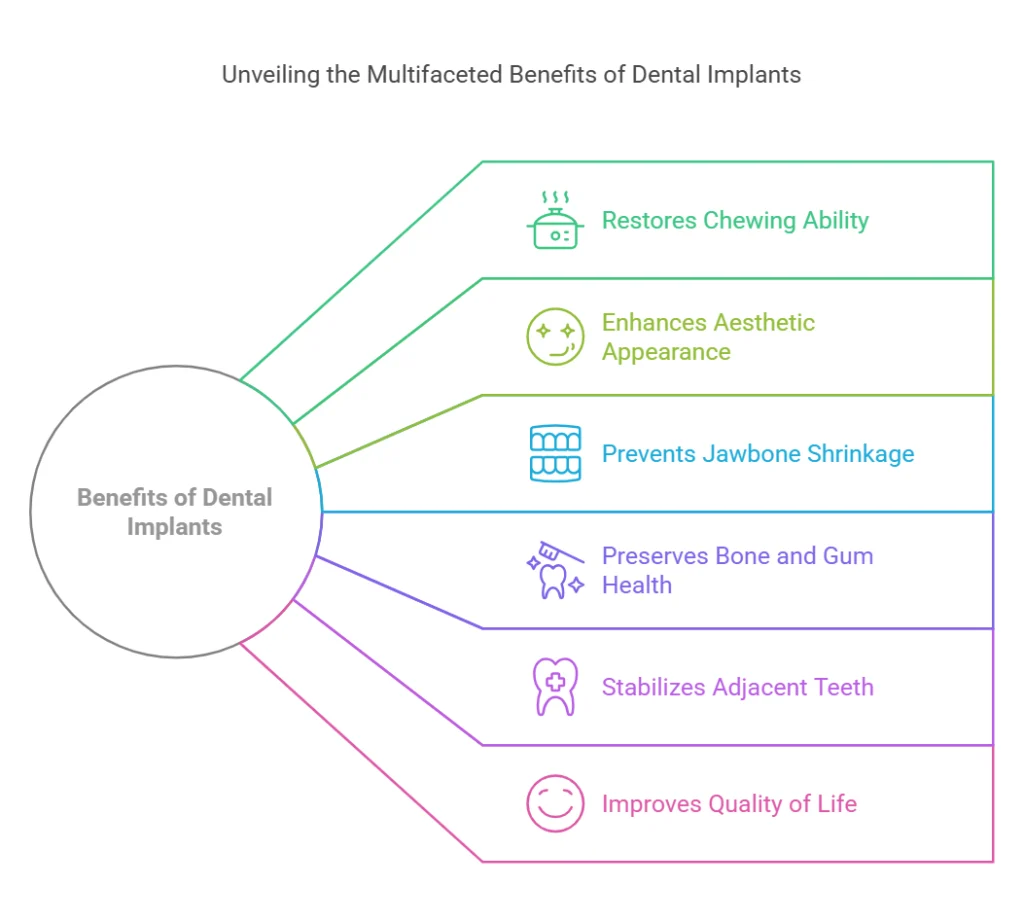
Restores the ability to chew
One of the most significant challenges people face after losing teeth is difficulty chewing their favorite foods. Dental implants provide a robust, permanent solution that restores full chewing functionality.
Unlike removable dentures, which can slip or limit bite force, dental implants are anchored firmly in your jawbone, just like natural teeth. This means you can bite into an apple, enjoy a perfectly grilled steak, or crunch on nuts without worry.
The implant’s titanium post fuses with your bone, creating a stable foundation that allows you to exert the same bite force as natural teeth.
This restoration of chewing ability isn’t just about enjoying food – it’s about maintaining proper nutrition and digestion, which starts with thorough chewing.
Restores cosmetic appearance
When you lose a tooth, especially in the visible front area, it can significantly impact your confidence and how you present yourself to the world.
Dental implants are designed to look and feel exactly like natural teeth, creating a seamless smile that nobody would guess isn’t original. The crown portion of the implant is custom-crafted to match the color, shape, and size of your surrounding teeth, ensuring a perfect blend.
Unlike older tooth replacement options, implants sit at the gumline just like natural teeth, creating a realistic appearance even when you smile widely.
This restoration of your natural appearance can have profound effects on your self-esteem, social interactions, and professional life, helping you feel like yourself again.
Helps keep the jawbone from shrinking due to bone loss
Many people don’t realize that their jawbone is living tissue that needs regular stimulation to maintain its density and shape. When you lose a tooth, the bone that once supported it begins to deteriorate because it’s no longer receiving pressure from chewing forces.
Dental implants are the only tooth replacement option that actually prevents this bone loss by mimicking the root of a natural tooth.
The titanium post of the implant stimulates the bone through a process called osseointegration, encouraging continued bone growth and maintaining the natural structure of your jaw.
This preservation of bone mass not only maintains facial structure but also prevents the aged, sunken appearance that can develop with long-term tooth loss.
Preserves the health of the surrounding bone and gums
Dental implants don’t just replace missing teeth, they actively contribute to the health of your entire oral ecosystem. Unlike traditional bridges, which require grinding down adjacent teeth for support, implants stand independently, preserving the integrity of neighboring teeth.
The presence of an implant helps maintain proper spacing and alignment, preventing the shifting that can occur when gaps are left unfilled.
Additionally, the implant post helps stimulate healthy blood flow to the surrounding gum tissue, promoting better gum health.
This comprehensive approach to tooth replacement helps maintain the natural balance of your mouth, reducing the risk of future dental problems and maintaining overall oral health.
Helps keep adjacent (nearby) teeth stable
When you lose a tooth, it’s not just about the gap in your smile, it affects your entire mouth’s architecture. Without a tooth to maintain proper spacing, adjacent teeth naturally begin to shift and tilt toward the empty space.
This movement can create a domino effect, causing misalignment throughout your mouth, leading to bite problems, and making it harder to clean between teeth effectively.
Dental implants act as space maintainers, providing the necessary support to keep neighboring teeth in their proper positions.
This stability helps prevent the need for future orthodontic work and maintains the natural alignment of your bite, protecting your long-term oral health.
Improves quality of life
The impact of dental implants extends far beyond the physical aspects of tooth replacement, they can truly transform your daily life. Imagine never having to worry about your teeth when you laugh, speak, or eat in public.
Unlike removable dentures, implants become a permanent part of you, eliminating concerns about slipping or clicking sounds during conversations.
They restore not just function but also confidence, allowing you to focus on living your life rather than being conscious of your teeth.
Many patients report significant improvements in their social lives, career interactions, and overall happiness after getting dental implants.
The peace of mind that comes with knowing you have a permanent, reliable solution to tooth loss is invaluable for your mental and emotional well-being.
Benefits of dental implants vs bridges
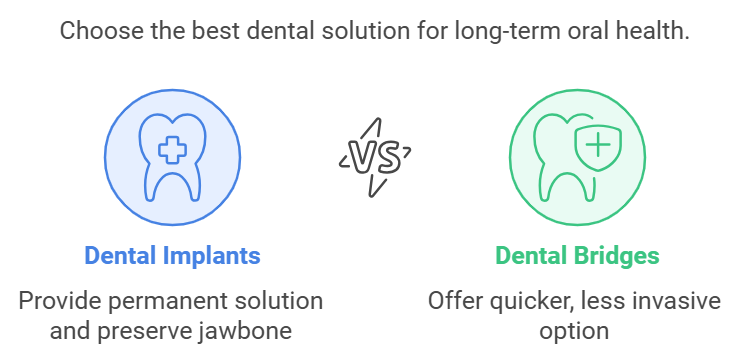
You shouldn’t feel any difference with dental implants or bridges. The only time you’ll notice a difference is when a dental bridge has just been fitted, as it can take a few weeks to fully adjust to it.
The same can be said about dental implants, although they are considered a much better procedure.
Patients will find that they have a comfortable bite and that their new teeth feel similar to their natural teeth. Dental implants win because they’re less noticeable in the smile and function just like natural teeth.
You should think about cost and speed when choosing between the two tooth replacement options. Dental bridges are your best choice if you want a shorter treatment time, lower cost, and no surgery.
But if you want a long-term procedure to your missing teeth, dental implants are your best bet. Despite the benefits of dental implants, dental implants are not cost-friendly.
Are You a Good Candidate for Dental Implants?
Anyone who is healthy enough to have oral surgery can be a candidate for dental implants. It is important that patients have healthy gums and sufficient bone to support dental implants.
They must also commit to good dental hygiene and regular dental visits. If you are considering getting implants, Contact us for a free consultation.
If you do not have a local dental destination, please feel free to contact us at medconsulto to discuss with any of our experienced dentists to help you decide which option you should choose.
Faq:
What is the downside of dental implants?
. It is a surgical procedure that requires a healing phase.
. It may be more expensive than other forms of treatment initially.
. Mechanical failure of dental implant components.
. Fracture of dental crown.
Are dental implants worth having?
Dental implants have an amazing 95% success rate, and their cost can be justified by the quality of life and future benefits of dental implants.
What are the benefits of full mouth implants?
Fortunately, full dental implants offer a permanent solution. They fill the gap between your missing teeth, restore your self-confidence and improve your ability to eat and speak. These implants are also designed to fuse with your jawbone, creating a strong support for a secure fit.
Are dental implants as good as real teeth?
Yes, dental implants are similar to real teeth in many ways.
Resources

